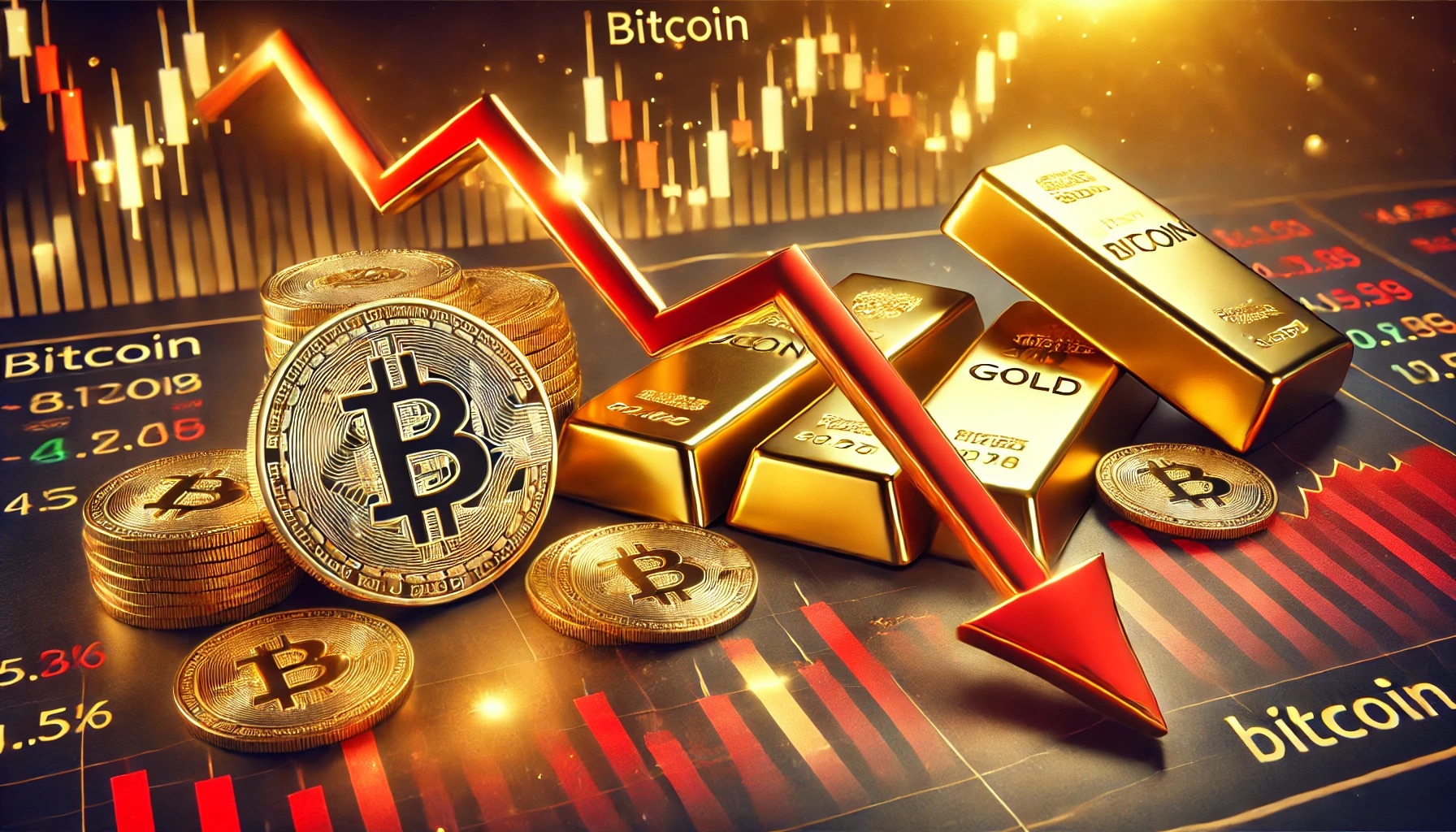
As tensions escalate in the Middle East, commodities such as gold and crude oil have seen a significant uptick, while Bitcoin has moved in the opposite direction. This divergence has reignited the debate over Bitcoin’s status as a safe-haven asset amid geopolitical instability.
Commodities Surge Amid Rising Geopolitical Tensions
On October 1, gold prices climbed by 1.4%, reaching $2,665 per ounce, just shy of its all-time high, according to Goldprice.org. Crude oil also experienced a sharp increase, with prices spiking by as much as 7% to hit $72 per barrel. The market’s reaction to these developments highlights investors’ inclination to seek security in traditional safe-haven assets amid broader market uncertainty.
The situation intensified following a major missile strike by Iran targeting various sites in Israel late on October 1. Reports indicated that Israel’s air defenses successfully intercepted most of the 180 incoming missiles, further heightening concerns about regional stability.
Li Xing, a financial markets strategist consultant for Exness, commented on the shifting dynamics:
“The escalating conflict in the Middle East has prompted investors to seek security in gold, bolstering its appeal amidst broader market uncertainty.”
In addition to commodities, bonds and the United States dollar also rose in response to the ongoing conflict. The market typically reacts to geopolitical threats by favoring these more stable investment vehicles, which are perceived as less risky during times of turmoil.
Bitcoin Experiences a Significant Drop
In stark contrast to the surge in traditional safe-haven assets, Bitcoin (BTC) experienced a notable decline, dropping more than 3% in the last 24 hours. The price fell from an intraday high of $64,000 to a low of $60,315 at 20:40 UTC on October 1. At the time of writing, Bitcoin has seen a slight recovery, trading at approximately $61,800.
Data from Coinglass reveals that the recent market turbulence has led to substantial liquidations, with 154,770 traders liquidated in the past 24 hours, resulting in total liquidations of around $521 million. This suggests that many traders were caught off guard by the sudden price swings, reflecting the volatile nature of the cryptocurrency market.
In light of the missile attacks, Israeli Prime Minister Benjamin Netanyahu vowed retaliation, stating:
“Iran made a big mistake tonight — and it will pay for it.”
This declaration underscores the seriousness of the situation, as it adds another layer of uncertainty in an already volatile region. Historically, such geopolitical tensions have adversely affected Bitcoin prices, as seen on April 13, when Bitcoin prices plummeted by more than 8% following an Iranian drone attack on Israel.
Bitcoin’s Status as a Safe-Haven Asset Questioned
The contrasting movements of Bitcoin and traditional commodities have raised questions about Bitcoin’s status as a safe-haven asset. Jeroen Blokland, founder of the Blokland Smart Multi-Asset Fund, observed that investors appear to be selling BTC to buy gold. This shift has led some to poke fun at Bitcoin’s reputation as a “safe haven.”
Precious metals analyst Jesse Colombo shared his insights with his 169,000 followers on X (formerly Twitter), stating:
“Bitcoin and crypto always tank when there are geopolitical fears, unlike precious metals. That confirms my long-held belief that crypto is not a safe haven. It’s yet another risk asset just like high-flying tech stocks.”
The implications of these geopolitical tensions extended beyond cryptocurrencies. U.S. tech stocks also took a hit on the same day, with major players like Apple and Nvidia declining by around 3%, while the Nasdaq 100 index lost more than 2%. This broader market reaction indicates that investor sentiment is significantly affected by the prevailing geopolitical climate.
Contrasting Views on Bitcoin
Despite the negative sentiment surrounding Bitcoin, some financial leaders believe it still holds potential as an alternative asset. BlackRock CEO Larry Fink previously suggested that Bitcoin could serve as an inflation hedge, indicating that some view it as a long-term investment option.
In an interview with Fox Business in July 2023, Fink emphasized:
“Bitcoin could still be an alternative inflation hedge asset.”
Markus Thielen, head of research at 10x, provided further context on Bitcoin’s original design and its ongoing evolution. He noted that Bitcoin was initially created as a peer-to-peer electronic cash system rather than a safe-haven asset. Thielen stated:
“Bitcoin is still maturing and has yet to fully transition into its potential role as a gold substitute, which some believe will occur if governments outlaw individual gold ownership.”
He added that, until such a transition occurs, “Bitcoin’s price will continue to be influenced by economic and liquidity cycles,” and noted that the current economic outlook remains weak.
The contrasting performances of Bitcoin and traditional safe-haven assets like gold in light of escalating tensions in the Middle East highlight the ongoing debate regarding Bitcoin’s role as a safe haven. While commodities have surged, Bitcoin’s decline raises questions about its perceived stability in times of geopolitical crisis.
As the situation develops, market participants will closely monitor how these dynamics unfold and whether Bitcoin can eventually solidify its position as a reliable alternative asset. For now, gold remains the go-to choice for investors seeking safety, while Bitcoin continues to navigate the complexities of its identity within the broader financial landscape.
| Key Market Developments | Details |
|---|---|
| Gold Price Surge | Increased by 1.4% to $2,665 per ounce |
| Crude Oil Price Spike | Rose by 7% to $72 per barrel |
| Bitcoin Price Drop | Fell over 3%, from $64,000 to $60,315 |
| Total Liquidations in 24 Hours | Approximately 154,770 traders liquidated, totaling $521 million |
| Broader Market Impact | U.S. tech stocks fell; Apple and Nvidia down by ~3% |
Featured image credit: DALL-E by ChatGPT
Follow us for more breaking news on DMR
